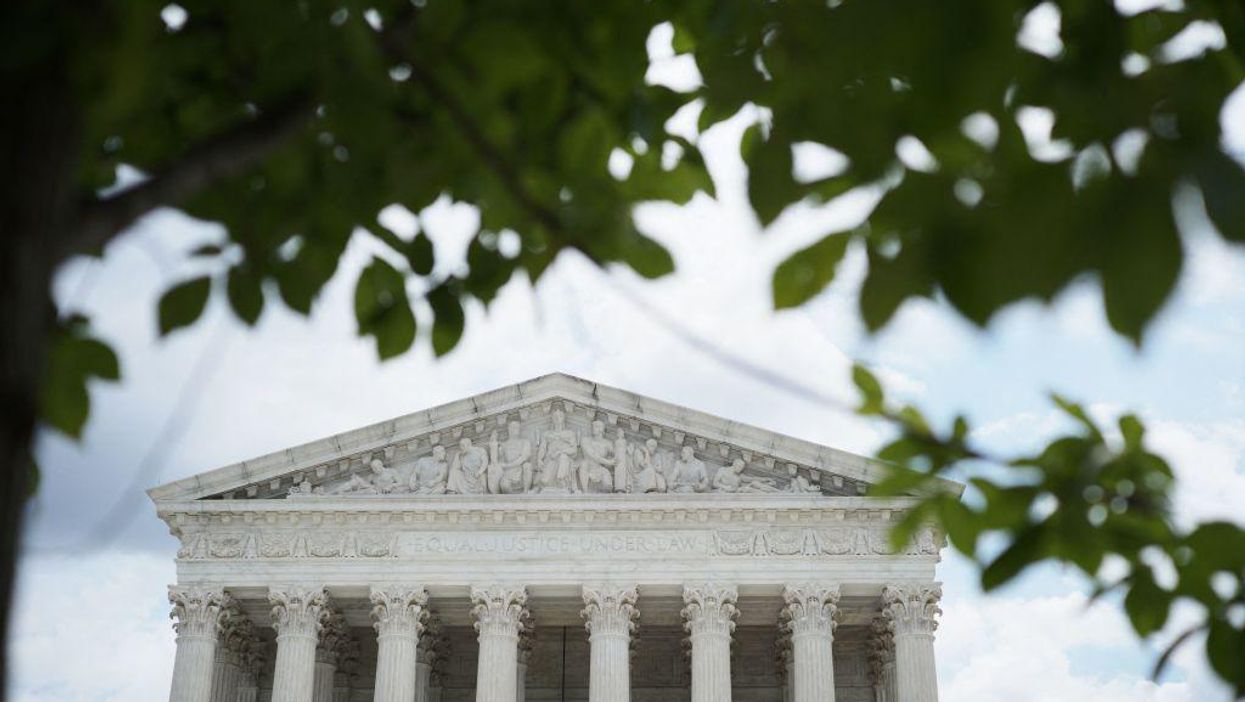
MANDEL NGAN/AFP via Getty Images

The court's decision could spell doom for the Justice Department's lawsuit against Georgia
The Supreme Court on Thursday upheld two Republican-backed voting rules in Arizona, providing a boon to ongoing Republican efforts in other states to pass laws aimed at ensuring the integrity of elections.
In a 6-3 decision, the top court determined that two Arizona voting rules — one requiring that provisional ballots be tossed if submitted at the wrong precinct and another making it a felony for third parties to collect and submit another person's ballot — do not violate the Voting Rights Act of 1965.
The case landed before the high court after the Ninth Circuit Court of Appeals ruled last year that the voting rules disproportionately burdened minority voters, thus violating the law. But in Thursday's decision, the court's band of conservative justices overturned the lower court's ruling.
"Arizona's out-of-precinct policy and HB 2023 do not violate [Section 2] of the VRA," Justice Samuel Alito wrote for the majority opinion. He was joined by Chief Justice John Roberts and Justices Clarence Thomas, Neil Gorsuch, Brett Kavanaugh, and Amy Coney Barrett.
In general, the court found that Arizona law "makes it quite easy for residents to vote," and when restrictions are applied, the state goes out of its way to alleviate any substantive burdens to voting. Any burdens that remain are commonplace and not discriminatory, the court concluded.
"Having to identify one's own polling place and then travel there to vote does not exceed the 'usual burdens of voting,'" Alito argued. "On the contrary, these tasks are quintessential examples of the usual burdens of voting."
He added elsewhere that the "mere fact there is some disparity in impact does not necessarily mean that a system is not equally open or that it does not give everyone an equal opportunity to vote."
Besides, states have a legitimate interest in guarding against fraudulent activity, the justice added.
"Fraud can affect the outcome of a close election, and fraudulent votes dilute the right of citizens to cast ballots that carry appropriate weight," he wrote. "Fraud can also undermine public confidence in the fairness of elections and the perceived legitimacy of the announced outcome."
Dissenting from the majority were liberal Justices Elena Kagan, Stephen Breyer, and Sonia Sotomayor.
The court's decision comes as Republican-controlled state legislatures across the country consider new laws to tighten election security. In response, Democrats have argued that the new measures are nothing more than voter suppression tactics.
President Joe Biden's Justice Department has even filed a lawsuit against the state of Georgia over such reforms. But the Supreme Court's Thursday ruling may foreshadow the DOJ's defeat.
On Thursday, the president called the ruling a "broad assault against voting rights."
"In a span of just eight years, the Court has now done severe damage to two of the most important provisions of the Voting Rights Act of 1965 – a law that took years of struggle and strife to secure," Biden added.
On the other hand, Arizona Attorney General Mark Brnovich, who appealed the Ninth Circuit ruling to the Supreme Court, celebrated the ruling as "a win for election integrity safeguards in Arizona and across the country."
"Fair elections are the cornerstone of our republic, and they start with rational laws that protect both the right to vote and the accuracy of the results," he added.